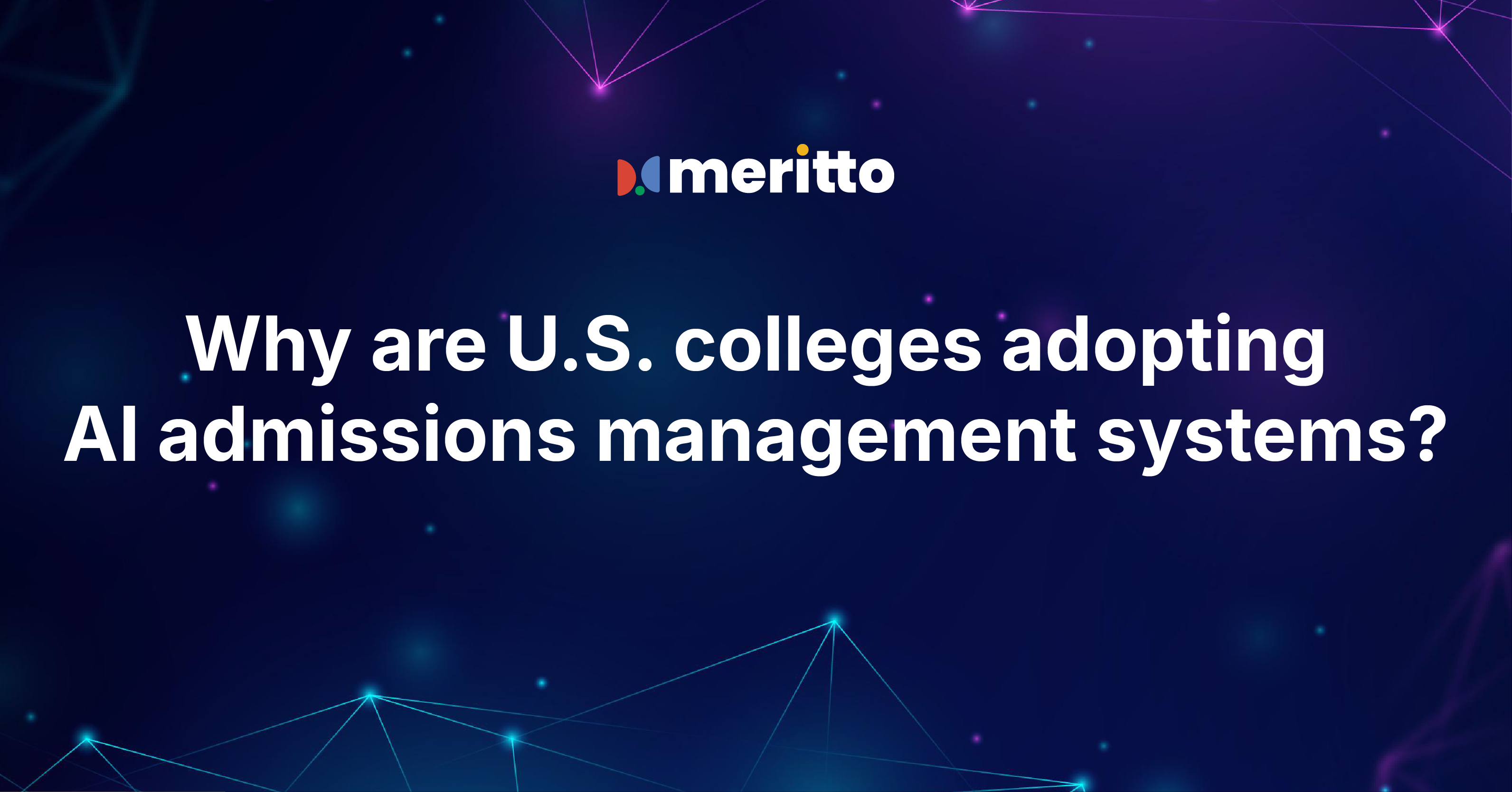The higher education landscape in the U.S. is undergoing a fundamental shift. Colleges and universities are navigating a growing list of challenges that make student enrollment more complex than ever before. From the sheer volume of applications to rising expectations for personalized engagement, the pressure is on admissions teams to deliver faster, smarter, and more equitable decisions.
Let’s break down what’s driving this change—and why many institutions are turning to AI admissions management systems to stay ahead.
1. Surging application numbers
With students applying to more schools than ever before, colleges are seeing record-breaking application volumes. Managing and evaluating thousands—or even tens of thousands—of applications has become a logistical nightmare for admissions teams. AI-powered tools can streamline application sorting, flag priority candidates, and reduce turnaround times, all without sacrificing the quality of review.
2. Personalized engagement expectations
Today’s prospective students expect more than an email confirmation. They want real-time updates, personalized outreach, and a seamless, intuitive application process. Meeting these expectations manually is nearly impossible. This is where AI admissions management systems shine—by enabling automated, intelligent communication that feels personal and timely, without overwhelming staff.
3. Time-consuming administrative tasks
Admissions teams often find themselves buried in manual work—data entry, application tracking, internal coordination, and more. These time drains pull focus away from strategic priorities like student engagement and outreach. Adopting AI admissions management systems helps reduce this burden by automating repetitive tasks and centralizing workflows, giving staff more time to focus on what truly matters: building meaningful connections with future students.
4. Ensuring diversity and inclusion
Universities are committed to creating diverse and inclusive student bodies, but doing so fairly and transparently is a significant challenge. AI admissions management systems offer data-driven insights that help remove unconscious bias and ensure consistency in evaluations, while still honoring each applicant’s unique story.
5. The push toward operational efficiency
Budget cuts and shrinking teams are becoming the norm across many campuses. Institutions are being asked to do more with less—and that includes admissions. By leveraging AI admissions management systems, colleges can operate with greater efficiency, scaling their efforts without compromising on quality or outcomes.
A smarter way to manage admissions
Institutions looking to modernize their admissions process are increasingly choosing purpose-built solutions that integrate data, communication, and workflows into one unified platform. One such solution is Meritto, a leading AI admissions management system designed specifically for the education sector.
Meritto enables institutions to automate engagement, improve applicant tracking, and make data-backed decisions—all while offering a better experience for both students and staff. It’s not just about adopting technology—it’s about transforming the way admissions work.
Final thought
As the enrollment landscape grows more complex, U.S. colleges can’t afford to rely on outdated tools and manual processes. AI admissions management systems are no longer a luxury—they’re becoming a necessity. For institutions aiming to recruit effectively, operate efficiently, and engage students on their terms, AI may just be the competitive edge they’ve been searching for.




